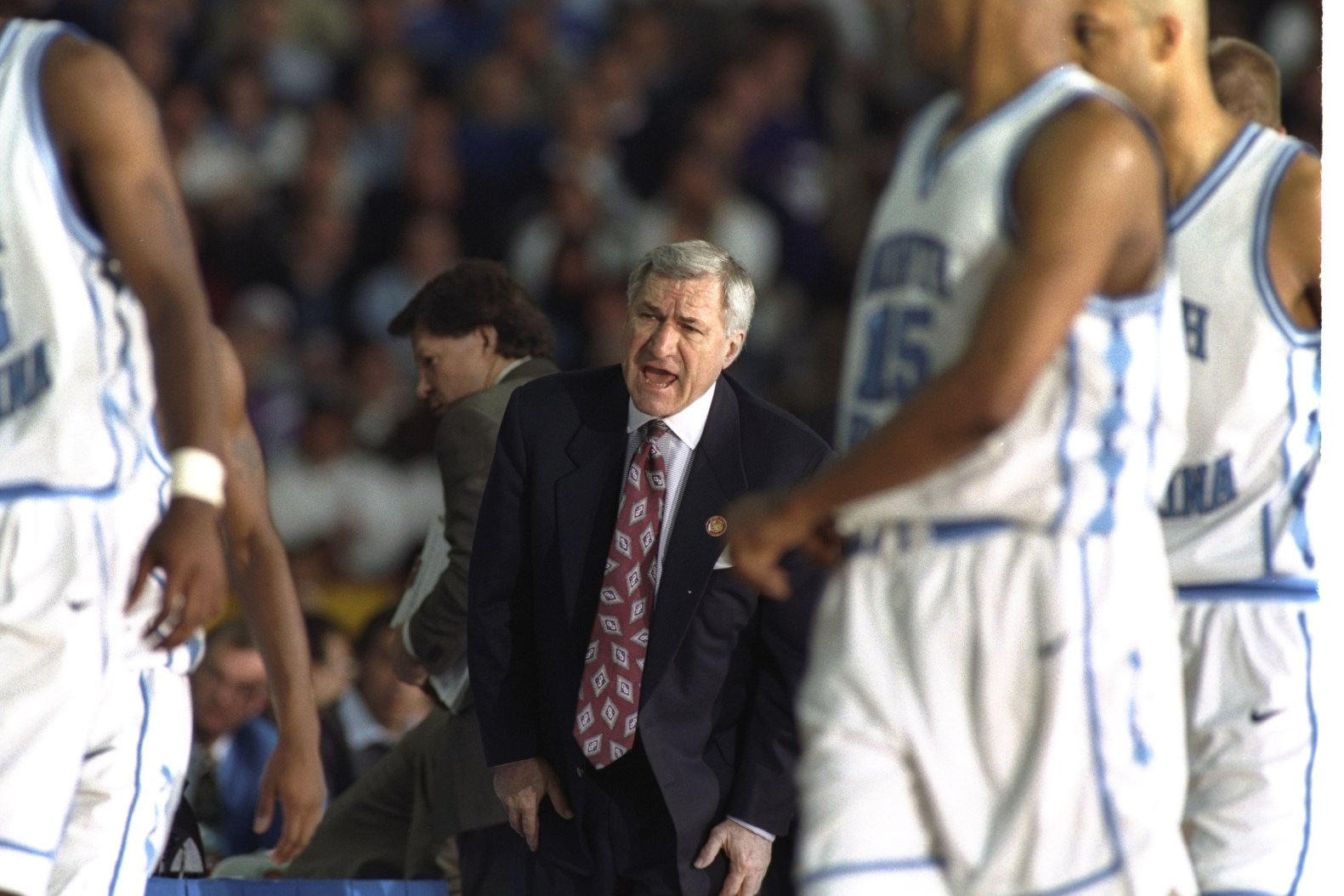It’s Been Decades Since Dean Smith — So Why Does College Basketball Still Look Lost Without Him?
The legacy of Dean Smith stretches far beyond the wins, championships, and banners that hang in the rafters of North Carolina’s Dean Dome. For decades, Smith wasn’t just a coach; he was a visionary, a teacher, and an innovator who reshaped the very DNA of college basketball. Yet, nearly three decades since his last game on the sidelines and years since his passing in 2015, the sport still feels like it is searching for someone capable of filling the void he left behind.
At a time when college basketball has become increasingly defined by one-and-done players, transfer portals, and inconsistent gameplay, the question lingers: why does the sport still feel adrift without a guiding figure like Dean Smith?
The Coach Who Changed Everything
Smith, who coached at UNC from 1961 to 1997, didn’t just rack up 879 wins and two national championships — he altered the way basketball itself was played. His now-famous Four Corners offense, which slowed the game to a crawl by spreading the floor and forcing opponents to chase, led directly to the implementation of the shot clock in 1985. What seemed like stalling was actually a brilliant manipulation of the rules to favor his team’s strengths.
In an ironic twist, Smith’s conservative tactic was the catalyst for making basketball faster, more dynamic, and ultimately more entertaining. Few coaches have ever wielded such influence over the sport’s evolution.
Visionary on and off the Court
But Smith’s genius wasn’t limited to X’s and O’s. He was one of the first major coaches to push for racial integration in the South, recruiting Charlie Scott in the 1960s as the first Black scholarship athlete at UNC. He took his players to restaurants that had historically barred African Americans, personally stood up to racial slurs from fans, and even helped Black students secure housing in all-white neighborhoods.
Smith didn’t just coach basketball — he shaped society. He used his platform to model courage and inclusion, setting a precedent that few have matched since.
What’s Missing in Today’s Game?
Modern college basketball has no shortage of great coaches — from Mike Krzyzewski and Roy Williams to Jay Wright and now new names rising in the NIL and transfer portal era. But what the sport seems to lack is a figure who blends strategic genius, moral authority, and transformative vision the way Smith did.
Today’s game is often criticized for being sloppy, overly reliant on individual athleticism, and defined more by fleeting stars than enduring systems. While analytics have transformed the professional game, the college level still feels stuck in a cycle of short-term fixes and inconsistent quality.
Smith’s philosophy — team-first, fundamentally sound, and morally grounded — feels like a relic, but also like the solution to the chaos.
Why the Void Remains
Perhaps the reason college basketball feels lost without Dean Smith is because his impact was so rare. He wasn’t simply ahead of his time; he was both of his time and beyond it. His willingness to adapt the game while also challenging societal norms created a standard that seems almost impossible to replicate.
He proved that winning and integrity could coexist, that innovation could drive fairness, and that a coach could be more than a sideline strategist — he could be a cultural leader.
The Question Moving Forward
As March Madness continues to thrill with its unpredictability, and as college basketball undergoes constant reinvention under the weight of NIL deals, expanded tournaments, and debates over player compensation, one question still hangs in the air:
Will there ever be another Dean Smith?
For now, the answer seems uncertain. Coaches can win games, even championships, but few can claim to have changed the game — and society — in the way Dean Smith did. Until another figure emerges with that rare combination of vision, courage, and mastery, college basketball may continue to look lost without him.




















